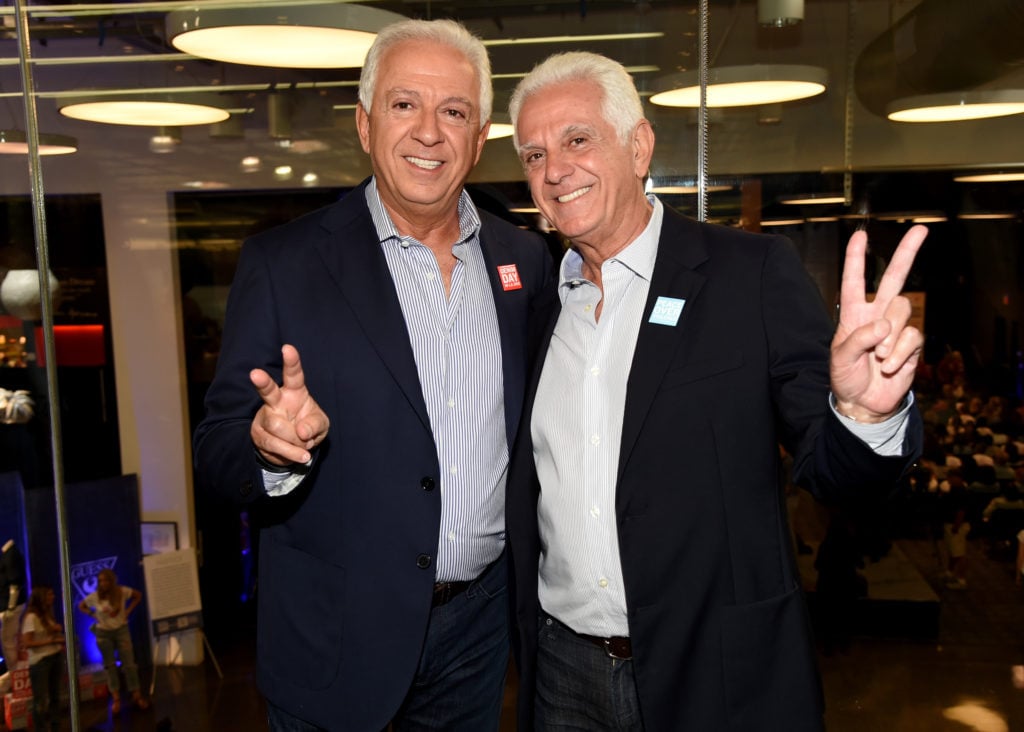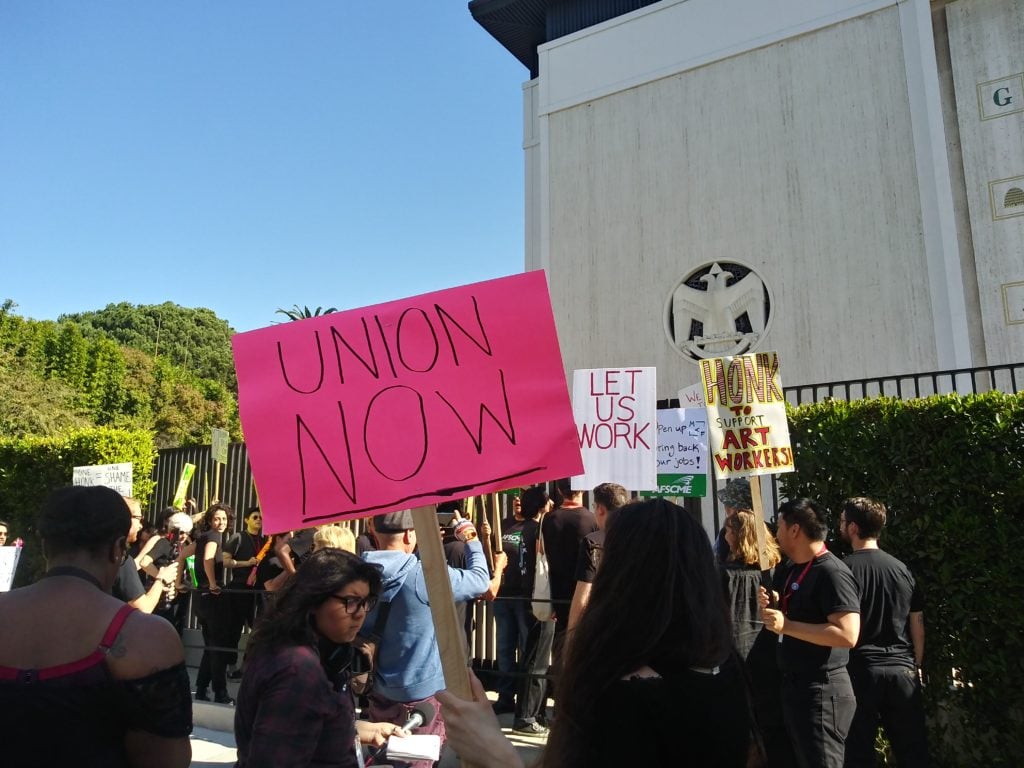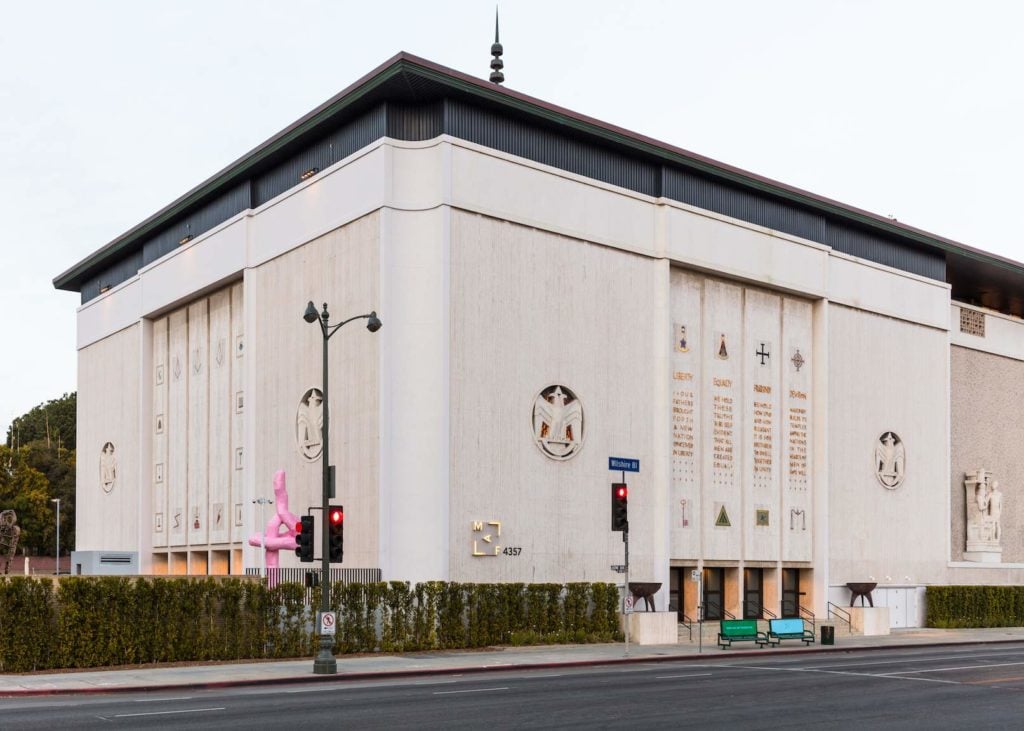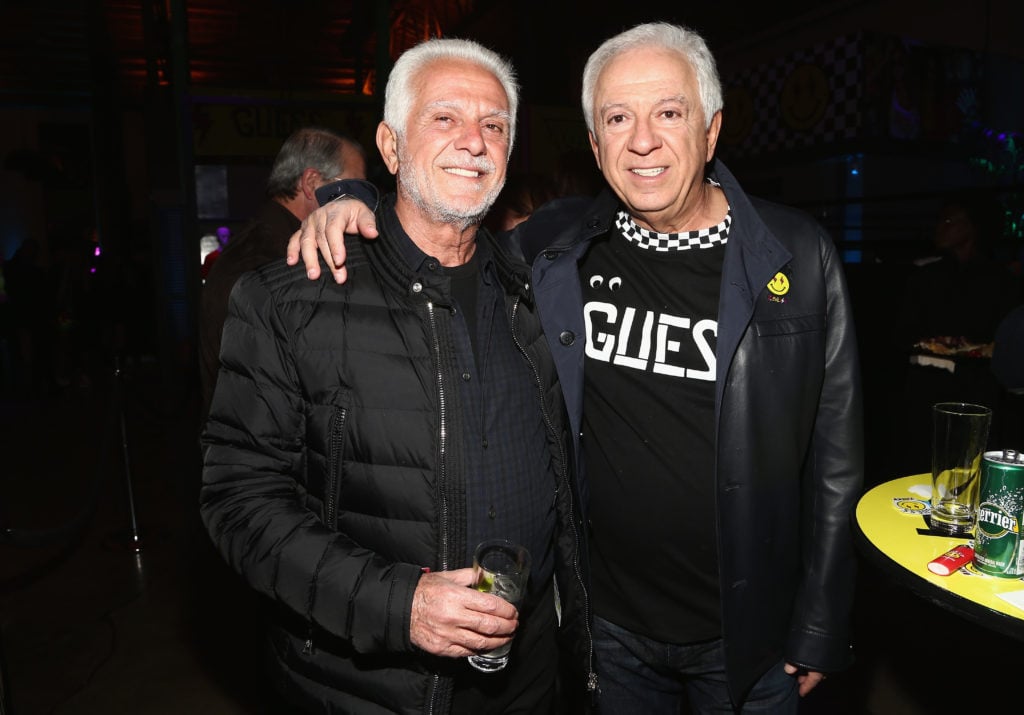Law & Politics
The Marciano Art Foundation Denies All Charges in an Ex-Employee’s Labor Lawsuit, Saying It Doesn’t Owe Former Staffers Back Pay
The plaintiff in the case is seeking class-action status.

The plaintiff in the case is seeking class-action status.

Eileen Kinsella

Just a few months ago, the Marciano Art Foundation, the private museum in Los Angeles founded by Guess fashion moguls and art-collecting brothers Paul and Maurice Marciano, was planning a splashy party to kick off the opening of the second edition of Frieze Los Angeles.
The museum, housed inside a former Masonic Temple on Wilshire Boulevard, which the brothers bought and overhauled for tens of millions of dollars, was about to get busy. And according to one former employee, staffers were also told to brace themselves for a considerable uptick of VIP tours.
Now, as Frieze Los Angeles is set to open tomorrow, the foundation is permanently shuttered. Its website leads nowhere and former members of its staff are wondering how a museum that was in the works for five years could have closed after only two years of operations.

Protests outside of the Marciano Foundation in Los Angeles. Photo: Catherine Wagley.
The abrupt shutdown came last fall, on November 7, just two days after a majority of the institution’s staffers—said to be about 70 visitor service associates and docents—voted to unionize.
The Marcianos said their sudden decision to close the museum was driven by poor attendance figures—a reason that seems odd, considering that they never charged for admission, and were no relying on visitors for financial support.
“People were very surprised at the swiftness and intensity of the reaction from the Marciano Foundation,” says Kenneth Moffitt, a former visitor service associate. “It appeared it was a reaction to our announcement” about intending to unionize.
“Mostly, people were just really upset,” he adds. “This was an important job for us and a lot of the employees were relying on the income.
At a meeting several days later that was attended by almost every visitor service associate and docent, Moffitt says the group decided “to do something to hold the Marciano Foundation accountable, so ultimately we decided on a class action suit.”

Exterior of the Marciano Art Foundation. Photo by Julian Calero.
In a phone interview with Artnet News, Moffitt, who worked at the Marciano Foundation since July 2017, praised his fellow visitor service associates and docents and said he enjoyed his time working there.
But he said that he and others were frustrated by the minimum-wage pay and what he described as “inconsistencies” with scheduling, including dropped shifts and last-minute tours. With no guards on staff, he said, he and others were expected also to monitor visitor activity and make sure no one got too close to the art.
In December, Moffitt filed an claim in California State Superior Court seeking class-action status for what he alleges are unfair and unlawful business practices, as well as violation of the state’s WARN act, which stipulates that employers must provide sufficient notice before ceasing operations and conducting mass layoffs.
According to his complaint, the museum heads are liable for “up to 60 days of back pay and the value of the cost of any benefits, civil penalties,” and attorney’s fees.
Attorneys for the foundation did not respond to Artnet News’s requests for comment, but in the foundation’s response to the suit, which was filed on January 31, its lawyers “deny generally and specifically each and every material allegation contained in the complaint… each and every alleged cause of action… and [that] the putative class members have been injured in any sum.”
The response further says that Moffitt’s complaint “fails to state facts sufficient to constitute a cause of action,” arguing that the foundation is not a “covered establishment” under the WARN act.
The Marcianos are asking the court to block class-action status, and are seeking to recoup their attorneys’ fees.

Maurice Marciano (left) and Paul Marciano. Photo by Tommaso Boddi/Getty Images for GUESS.
Daniel B. Rojas, an attorney for Moffitt, told Artnet News that a case management conference between the two sides is scheduled to take place on March 20.
“We will discuss, and be provided by the judge presiding over this case, the schedule for discovery and briefing on the issue of class certification,” he said. “After briefing, the judge will decide whether or not the class is appropriate as described in the complaint.”
“We are confident that the Marciano Art Foundation violated the California WARN Act by suddenly abandoning a substantial portion of its operations without adequate prior notice to employees,” Rojas added. “We look forward to proving the merits of this claim in a court of law.”